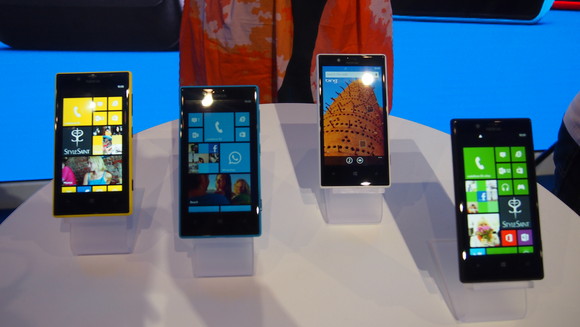Nokia Lumia 720 scuttles through the FCC, US release expected
Nokia's thin phone may slip itself into U.S. pockets soon

The Nokia Lumia 720 may be U.S. bound after all, as the ultra-thin Windows Phone 8 smartphone cleared the Federal Communications Commission, it was revealed today.
In addition to being Nokia's thinnest WP8 phone at just 9 mm, the Lumia 720 specs are the same in the U.S.
There's a large 4.3-inch WVGA display and a 6.7 MP main camera on the outside, and a 1GHz dual-core Qualcomm Snapdragon S4 processor and 512MB of RAM are on the inside.
Storage capacity on the Nokia Lumia 720 is limited to 8GB out of the box, but that can always be expanded with a MicroSD card to a maximum card size of 64GB.
Sizeable battery, but no LTE
The Nokia Lumia 720 retains the 2,000mAh battery found in its overseas models, according to internal photos in the FCC documents.
That's actually a higher-capacity battery than 1,440mAh battery in the iPhone 5. Nokia is promising 13.4 hours of talk time and 520 hours of standby time on 3G from the Lumia 720 battery life.
That's pretty good for a mid-range Windows Phone 8 smartphone.
Get daily insight, inspiration and deals in your inbox
Sign up for breaking news, reviews, opinion, top tech deals, and more.
The only significant oversight is that Nokia didn't end up including LTE in the Lumia 720. Instead, the FCC files reference GSM, WCDMA, and HSPA+ in addition to its WLAN and Bluetooth antennas.
Lumia 720 price, release date
Along with its thin 9mm body, the Lumia 720 unlocked is being priced at a modest £249.99 overseas, which converts to around USD $378.
Now it's up to one of the U.S. carriers to subsidize that price and release Nokia's newest Windows Phone 8 smartphone.
T-Mobile released the cheaper Nokia Lumia 520 last month, although a company spokesperson said it "doesn't have any news regarding the Lumia 720."
The Lumia 720 release date is fast approaching in Asia, and U.K. retailers are calling for an April 1 launch, so news about this WP8 smartphone coming to the U.S. shouldn't be too far behind.
